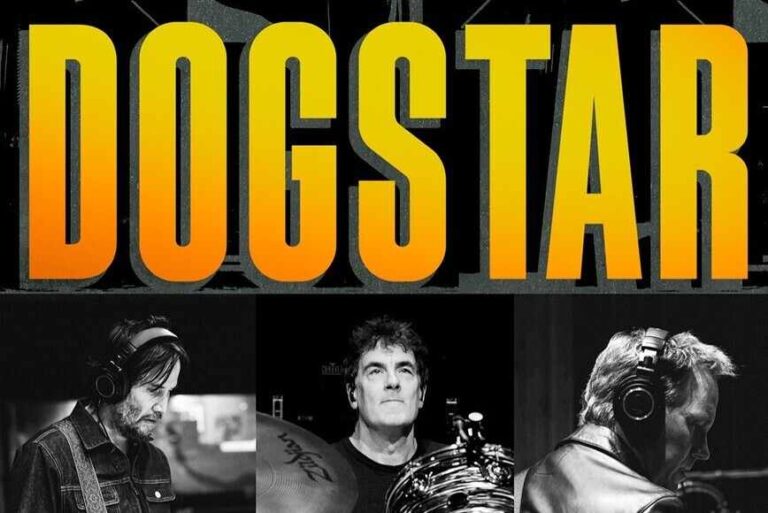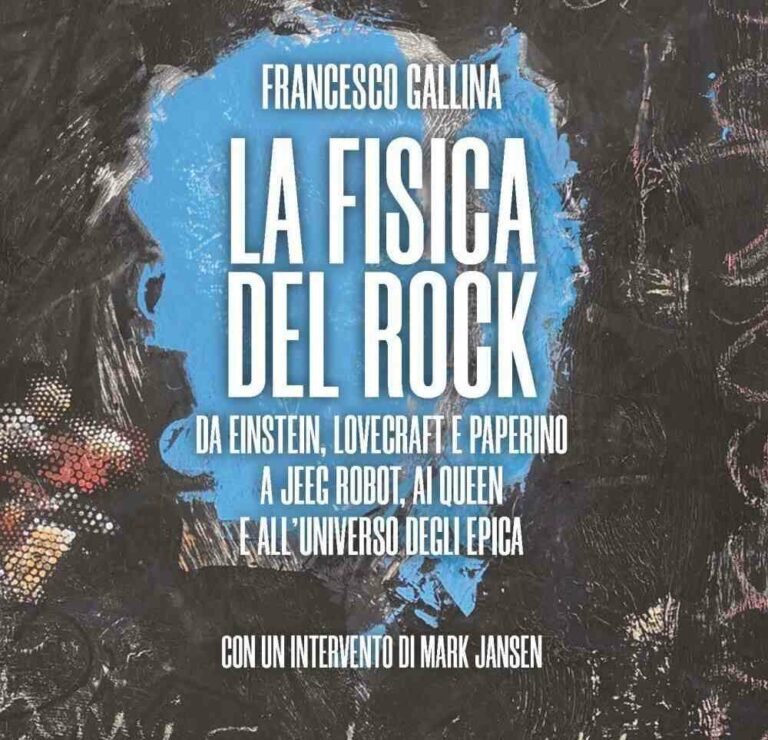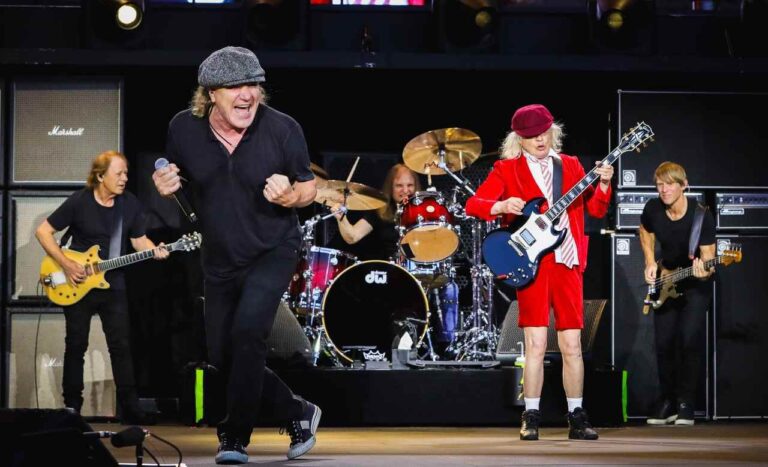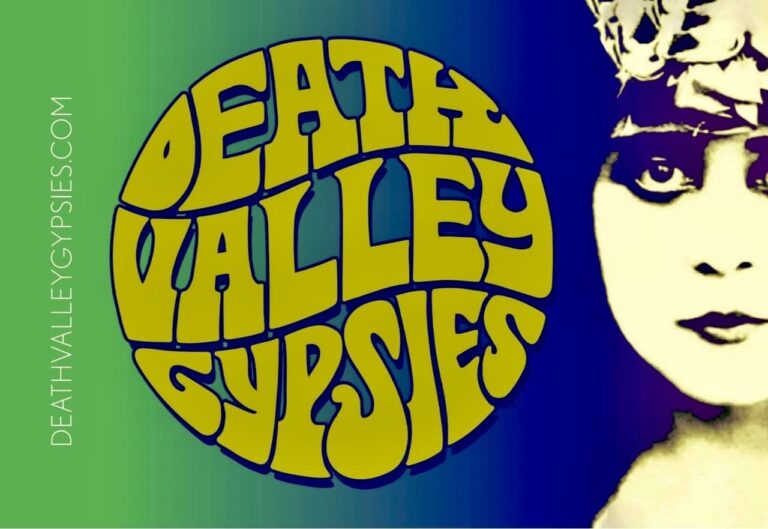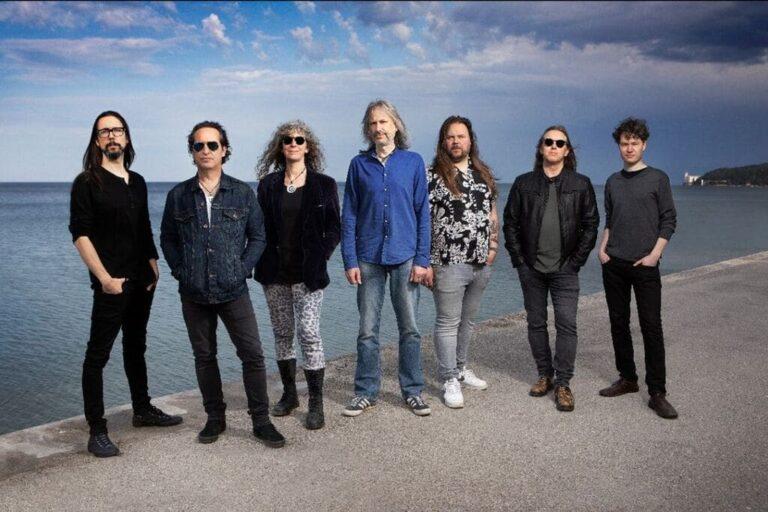Captain Beefheart: Unconventionally Yours – Italian-English Version
Don Van Vliet meglio conosciuto come Captain Beefheart, cantante, compositore e musicista avant-garde, è famoso soprattutto per il suo sperimentale mix di blues, jazz e rock con la sua band, Captain Beefheart & His Magic Band. La sua musica ha origine nel blues, caratterizzata da ritmi idiosincratici, liriche surreali e le sue potenti vocals, è altamente anticonvenzionale. Contiene composizioni avant-garde, influenze di free jazz e strutture delle canzoni inusuali. Don formò “Captain Beefheart & His Magic Band” nel 1964 e mantenne un ensemble musicale in rotazione attraverso tutti gli anni di esistenza del gruppo.
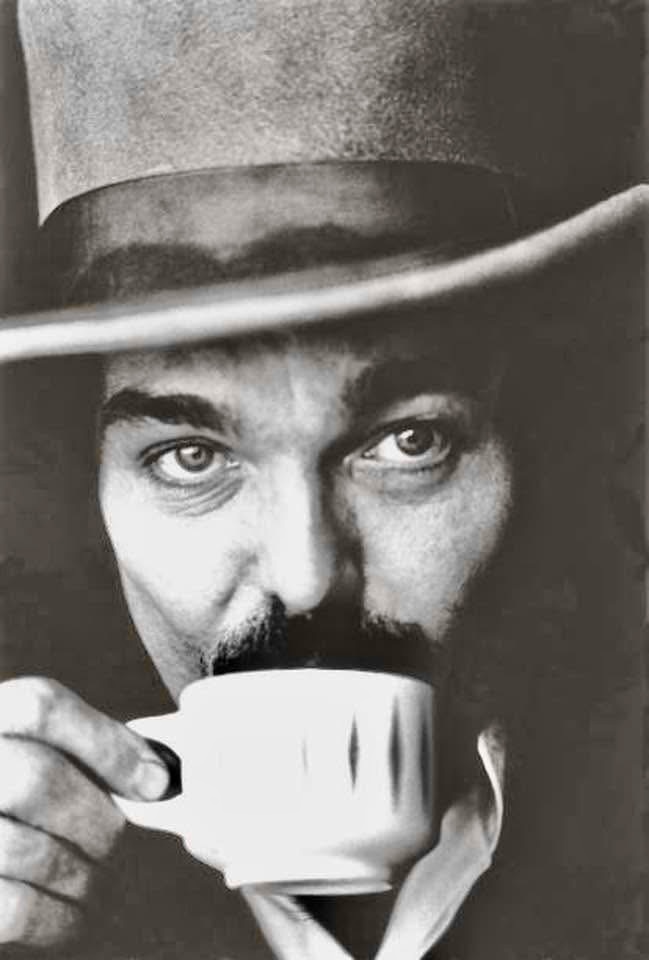
E sebbene Don, ora meglio noto come Captain Beefheart non abbia riscosso che un minimo successo commerciale, il suo eccentrico ed influente lavoro ha attratto un significativo seguito di cultori. Coloro che lo hanno portato avanti nella sua ascesa fino a farlo diventare un’icona del rock sperimentale.
La storia di Don
Don fu un bambino straordinariamente dotato dal punto di vista artistico, che eccelleva nella pittura e nella scultura. Purtroppo i suoi genitori scoraggiarono le sue aspirazioni artistiche cosi quando gli venne offerta, lui rifiutò una borsa di studio per andare a studiare Arte in Europa. Nei suoi anni da teenager la sua famiglia si trasferí a Lancaster, California, vicino al deserto del Mojave, dove lui incontrò e divenne amico di Frank Zappa.
La controversa amicizia con Frank Zappa
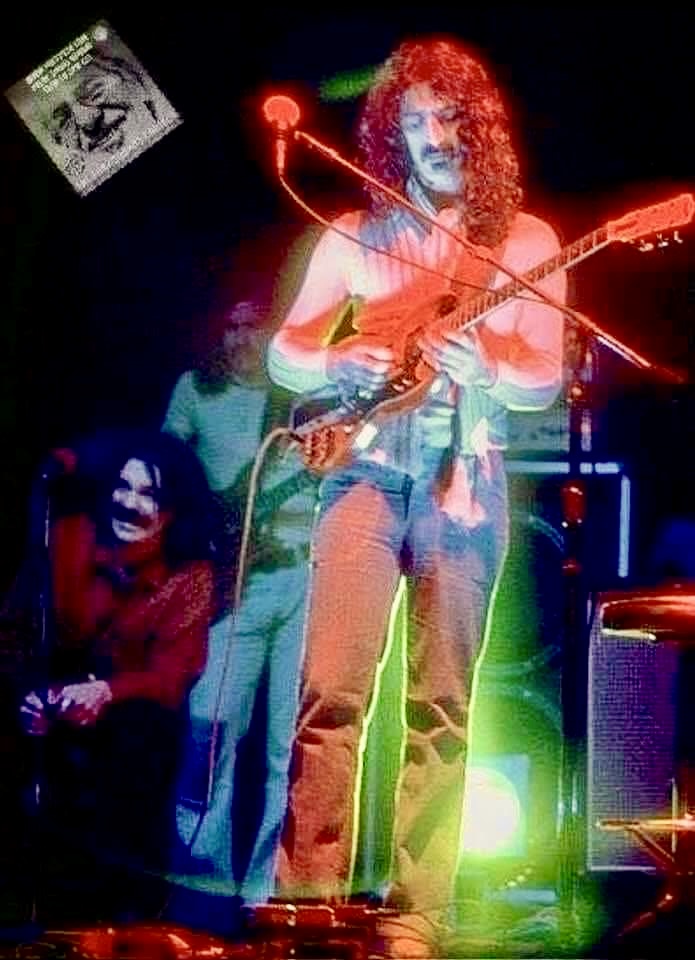
Zappa condivideva con lui la stessa passione per il blues di Chicago, e il rhythm and blues. I due amici avrebbero avuto un’inquieta relazione nel corso delle relative carriere musicali. Collaborarono occasionalmente ma furono sempre in competizione. E nonostante fossero competitivi, Don dovette ringraziare Frank per il famoso moniker “Captain Beefheart”. Il nome ha origine dal soggetto di un teenage movie che Zappa intitolò Captain Beefheart vs The Grunt People.
La formazione di Captain Beefheart
Don formò Captain Beefheart & His Magic Band nel 1964. Realizzarono alcuni singoli prima di debuttare con l’album Safe As Milk del 1967. L’album ricevette un buon riscontro da parte della critica ma non riuscí ad ottenere un successo da mainstream.
Alcuni anni più tardi, Captain Beefheart avrebbe pubblicato il suo più famoso ed influente lavoro, il doppio album Trout Maso Replica che venne pubblicato nel 1969, sull’etichetta di Frank Zappa Straight Records.
Un album caotico e bizzarro
Il disco fu registrato sotto un regime dittatoriale e psicologicamente tassativo, imposto da Don. Quando fu concluso, l’album che risultò come un bizzarro e caotico mix di ritmi armoniosi e liriche surreali, fu un flop commerciale. Ma alla fine Trout Mask Replica sarebbe diventato un marchio di fabbrica per il rock avant-garde.
La discografia di Captain Beefheart

Captain Beefheart avrebbe realizzato un certo numero di album tra gli anni ‘70 e gli inizi degli anni ’80 che variarono dallo sperimentale Link My Decals Off Baby (1970) ad album più convenzionali come Unconditionally Guaranteed e Bluejeans and Moonbeams (1974). Un successivo periodo di successo da parte della critica avvenuto alla fine degli anni ’70 e agli inizi degli anni ’80 incluse gli album Shiny Beast (Bat Chain Puller del 1978), Doc at the Radar Station (1980), e l’album finale Ice Cream for Crow (1982). A seguire una breve descrizione degli album di Captain Beefheart uno per uno.
Gli esperimenti iniziali di blues rock: Safe as Milk
Pubblicato nel 1967, è un album di blues psichedelico che mette in mostra le grintose vocals di Captain Beefheart e la slide guitar di Ry Cooder. Da molti viene considerato come il più accessibile lavoro degli inizi di Captain Beefheart.
Strictly Personnel
Disco pubblicato nel 1968, è più sperimentale, si allontana dal blues psichedelico ed è registrato con nuovi musicisti. Captain Beefheart non fu soddisfatto del risultato a causa della fase di post produzione con gli effetti aggiunti dal produttore Bob Krasnow.
Mirror Man
Registrato nel 1967, pubblicato nel 1971, è una collezione di quattro jam sessions avant-garde, con lunghe improvvisazioni sperimentali che facevano prevedere la direzione musicale futura del gruppo.
I capolavori Avant-Garde: Trout Mask Replica
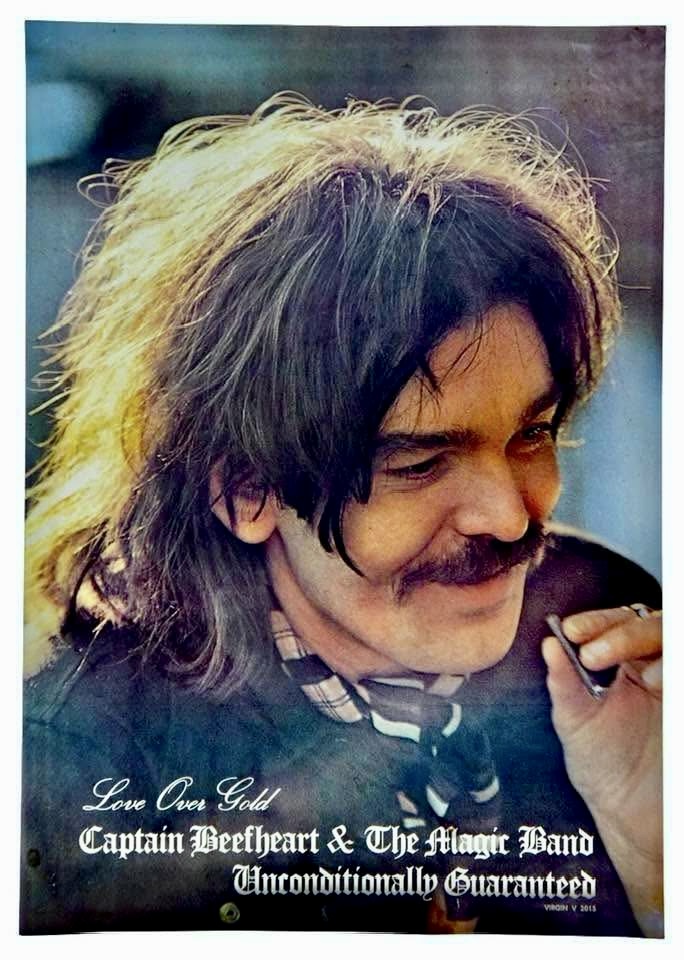
Pubblicato nel 1969. E’ un caotico doppio album prodotto da Frank Zappar. Contiene ritmi frammentati, chitarre dissonanti, poesia surreale e vocals sconclussionate. E’ il più famoso lavoro di Captain Beefheart e quello che ha influenzato più persone.
Lick My Decals Off, Baby
Pubblicato nel 1970. E’ il seguito del suono sperimentale di Trout Mask Replica ma con brani più corti e più coincisi. Da alcuni è considerato come la prova più rifinita dello stile avant-garde dell’artista.
Gli album più commerciali: The Spotlight Kid
Pubblicato nel 1972, è un album con un sound blues rock poiù heavy e più diretto. E anche se in modo anticonvenzionale, rappresenta un tentativo di raggiungere un’audience più vasta. Tentativo che però fallí.
Clear Spot
Pubblicato nel 1972, prodotto da Ted Templeman e Don Landee, è un album blues e soul spesso citato come uno dei lavori più accessibili di Captain Beefheart.
Unconditionally Guaranteed
Pubblicato nel 1974. E’ il disco di Beefheart più convenzionale e più orientato alla musica commerciale. Il disco fu largamente criticato dai media e rinnegato anche dallo stesso Captain Beefheart.
Bluejeans and Moonbeams
Fu pubblicato nel 1974, è simile ad Unconditionally Guaranteed, con un sound più ripulito. Ma fu anch’esso un insuccesso sia dal punto di vista commerciale che da quello critico.
Back in the Groove Again Shiny Beast (Bat Chain Puller)
Pubblicato nel 1978, fu un ritorno trionfale al suo stile più sperimentale ed avant-garde. Registrato con una nuova Magic Band, l’album ricevette critiche entusiaste sia dai media che dal pubblico dei fans.
Doc at the Radar Station
Pubblicato nel 1980, è un’ulteriore esplorazione attraverso lo stile astratto e stimolante mescolando del rock grezzo con passaggi di jazz parlato.
Ice Cream for Crow
Pubblicato nel 1982, fu l’ultimo album di Captain Beefheart prima che si ritirasse dalla musica. E’ un potente ed adeguato addio, con Captain che ritorna alle sue radici sperimentali di ritmi intricati e liriche astratte.
Il ritiro dalle scene e la carriera di pittore e scultore

Nel 1982 all’età di 41 anni, Don Van Vliet annunciò il suo ritiro dal mondo della musica, per focalizzarsi sulla carriera di pittore e scultore. Il suo lavoro di pittura astratta ed espressionista ottenne grande considerazione da parte della critica con tante mostre nelle gallerie d’arte di tutto il mondo. Per il resto della vita, dipingere divenne la prima attività per Don. Quella che gli diede la stabilità finanziaria che la musica non gli aveva mai dato. Fino a che Don lasciò questo mondo nel 2010 all’età di 69 anni.
Captain Beefheart: Unconventionally Yours

Don Van Vliet better known as Captain Beefheart, singer, songwriter, and avant-garde musician, is best known for his experimental blend of blues, jazz and rock with his band, Captain Beefheart & His Magic Band. His music rooted in the blues, is characterized by idiosyncratic rhythms, surreal lyrics, and his powerful gravelly vocals, is highly unconventional, featuring avant-garde composition, free jazz influences, and unusual song structures.
Captain Beefheart and His Magic Band
Don formed “Captain Beefheart & His Magic Band in 1964, and maintained a rotating musical ensemble throughout the band’s existence. And although Don, now better known as Captain Beefheart achieved minimal commercial success. His eccentricly influential work did attract a significant cult following and aided in his ascension to becoming an icon of experimental rock.
Don’s History
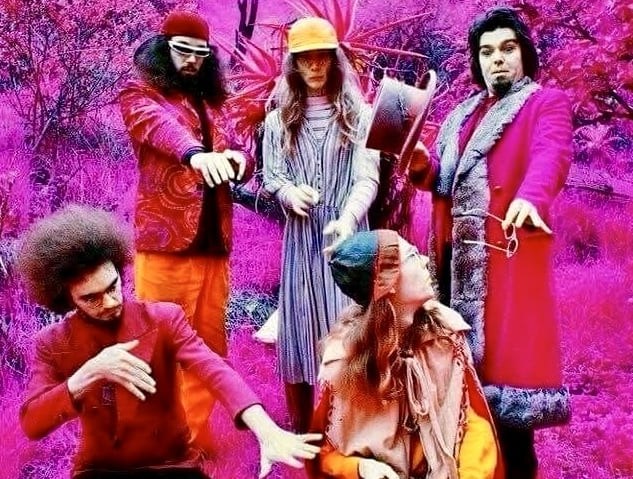
Born in Glendale, California in 1941, Don was an
extraordinarily artistically talented child, who excelled in painting and sculpting. Unfortunately his parents discouraged his artistic pursuits, so when offered, he did not accept a scholarship to study art in Europe.
In Don’s teen years his family moved to Lancaster, California, near the Mojave Desert, where he met and became a friend of Frank Zappa.
The controversial friendship with Frank Zappa
Who shared Don’s passion for Chicago blues and rhythm and blues. The two friends would have an uneasy relationship throughout their musical careers. They would occasionally collaborate but always be competitive.

And although they were competitive, Don had Frank to thank for his famous moniker “Captain Beefheart”, which originated from a teenage movie script Zappa wrote called Captain Beefheart vs The Grunt People.
The debut album
Don formed Captain Beefheart & His Magic Band in 1964. They released a few singles before releasing their debut album, Safe As Milk, in 1967. And although the album received critical acclaim, the album failed to achieve mainstream success. A few years later, Captain Beefheart would release its most famous and influential work, the double album Trout Mask Replica, which was released in 1969, on Frank Zappa’s Straight Records.
A chaotic and bizzarre album
The album was recorded under a dictatorial and psychologicaly taxing process, imposed by Don. When finished, the album, a bizarre and chaotic mix of harmonious rhythms and surreal lyrics was a commercial flop. But eventually Trout Mask Replica would become a landmark of avant-garde rock.
Captain Beefheart’s Discography
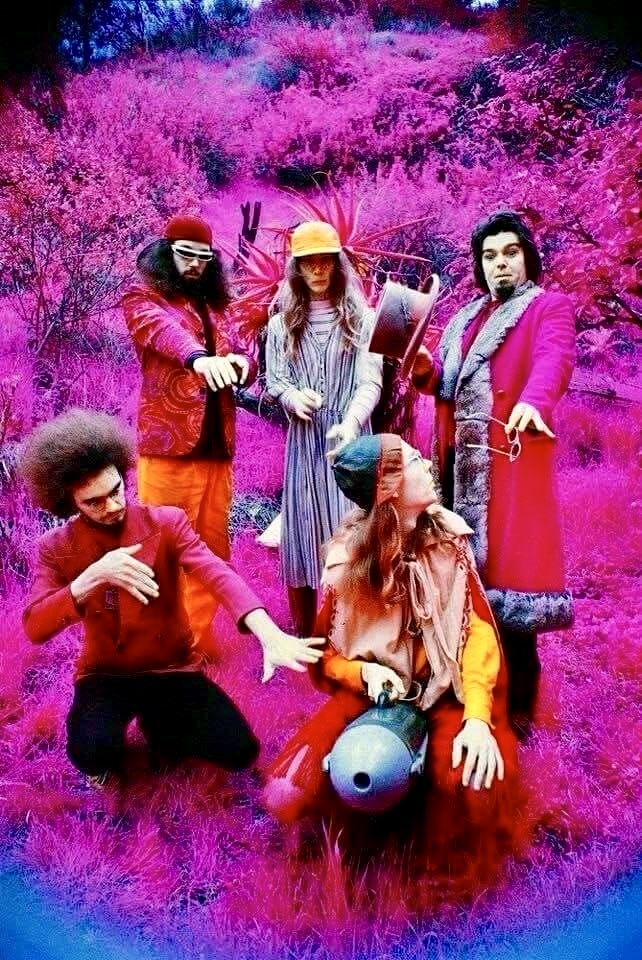
Captain Beefheart would go on to release a number of albums
in the 1970’s and early 1980’s, that varied from the experimental Lick My Decals Off Baby (1970) to the more conventional albums Unconditionally Guaranteed and Bluejeans and Moonbeams (1974). A later period of critical success in the late 1970’s and early 1980’s included the albums, Shiny Beast (Bat Chain Puller) (1978), Doc at the Radar Station (1980), and his final album Ice Cream for Crow (1982)
The following is a categorically, brief description of each of
Captain Beefheart’s albums.
Initial blues rock exploration: Safe as Milk
Released in 1967, is a psychedelic blues album showcasing Captain Beefheart’s raw vocals and Ry Cooder’s slide guitar. It’s often seen as Captain Beefheart’s most accessible early work.
Strictly Personnel
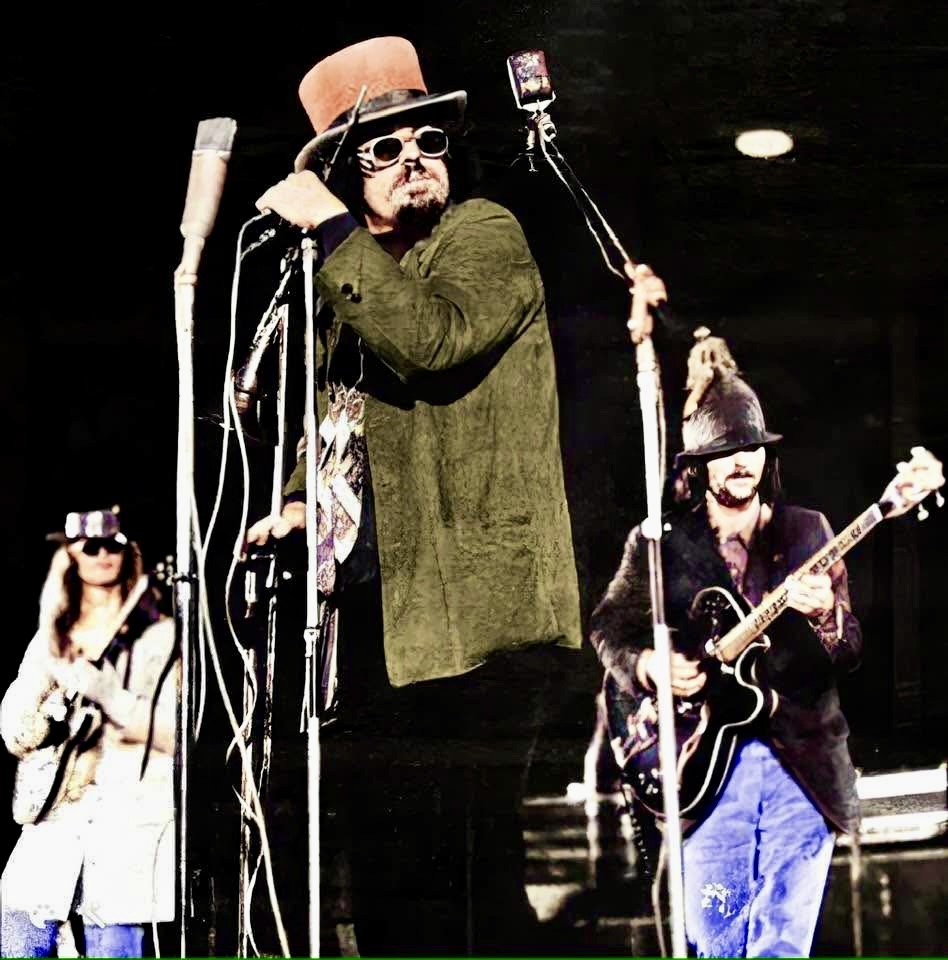
Album released in 1968, is a more experimental, phased-out psych- blues album recorded with new musicians. Which Captain Beefheart was unhappy with because of the post production phasing effects added by producer Bob Krasnow.
Mirror Man
Recorded in 1967, released in 1971, is a collection of four avant-garde blues jam sessions, featuring long experimental improvisations that hinted at the group’s future musical direction.
Avant-Garde Masterpieces :Trout Mask Replica
Released in 1969. Is a chaotic double album produced by Frank Zappa, featuring fractured rhythms, dissonant guitars, surrealistic poetry, and unhinged vocals. It is Captain Beefheart’s most famous and influential work.
Lick My Decals Off, Baby
Released in 1970. Is a continuation of Trout Mask Replica’s experimental sound, but with shorter, more concise songs. It is considered by some to be a more refined take on the Captain’s avant-garde style.
The More Commercial Albums: The Spotlight Kid
Released in 1972, is an album with a heavier, more straight forward blues-rock sound, and although still unconventional, it was an attempt to reach a wider audience, which failed.
Clear Spot
Released in 1972, produced by Ted Templeman and Don Landee, is a bluesy soulful album, often cited as one of Captain Beefheart’s more accessible albums.
Unconditionally guaranteed
Released in 1974. Is the most conventional and commercially oriented of Beefheart’s albums, that features straightforward rock music. The album was widely canned by critics and disowned by Captain Beefheart himself.
Bluejeans and Moonbeams
It was released in 1974, is similar to Unconditionally Guaranteed, but with a more polished sound, which was also a commercial and critical failure.
Back in the Groove Again Shiny Beast (Bat Chain Puller)
Released in 1978, was a triumphal return to Captain Beefheart’s more experimental, avant-garde style. Recorded with a new Magic Band, the album was enthusiastically received by critics and fans alike.
Doc at the Radar Station

Released in 1980, is a further exploration of Beefheart’s signature abstract and challenging style, mixing rawboned rock with jazzy spoken word passages.
Ice Cream for Crow
Released in 1982, was Captain Beefheart’s last album before retiring from music, is a powerful and fitting farewell, with the Captain returning to his experimental roots of intricate rhythms and abstract lyrics.
The retirement from music and the career as a painter and sculptor
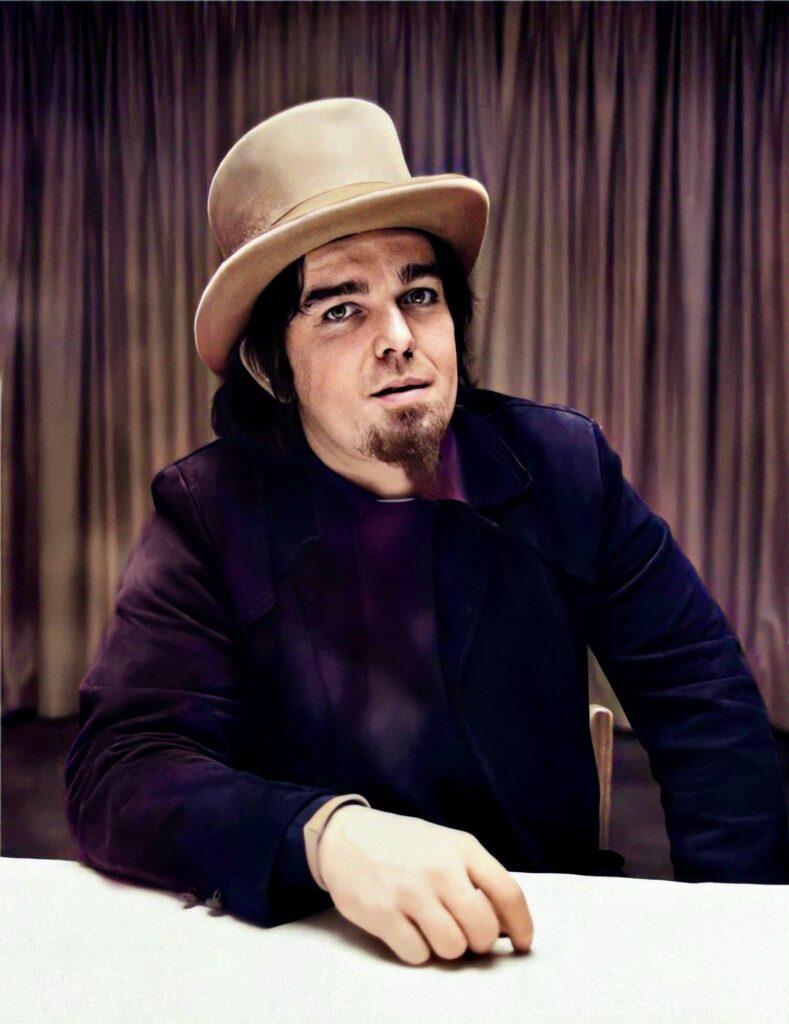
In 1982 at the age of 41, Don Van Vliet announced his retirement from music, to focus on a career as a painter and sculptor. His abstract expressionist artwork was critically acclaimed and exhibited in art galleries around the world, and for the rest of his life, painting was Don’s main focus, that would provide him with the financial stability that music never had. Till Don left this world in 2010 at the age of 69.
LEGGI ANCHE:
- Octoploid: Nuovo Video “Coast Of The Drowned Sailors” e Espansione del Tour 2025!
- Fabio Moresco: il ritmo del progressive rock
- SLIFT: UN VIAGGIO PSICHEDELICO ALLA SCOPERTA DI UN NUOVO SOUND
- Landfall: Il Grande Ritorno con “Wide Open Sky” – Melodic Rock al Suo Massimo Splendore
- Pink Floyd: come nacque il capolavoro psichedelico “The Piper at the Gates of Dawn”
- Il rave degli Underworld alla Boiler Room di Londra: Sotto la pelle bassi vibranti
- La misteriosa sparizione di Jim Sullivan
- Intervista a Garry ‘Moonboot” Masters: i dettagli sul suo album Bone Idol
- Garry “Moonboot” Masters: i ricordi del fondatore di The Magic Mushroom Band della scena musicale londinese anni ’60 e ’70




